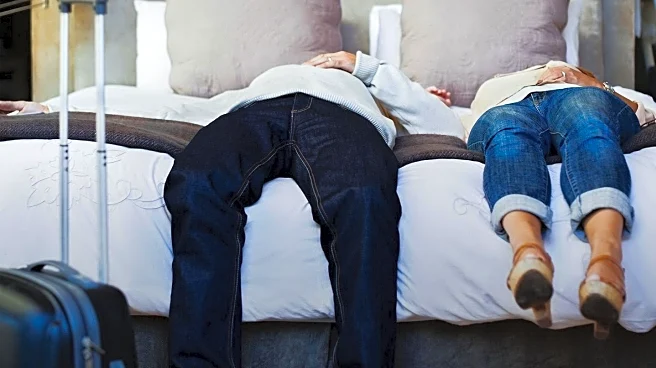What is the story about?
What's Happening?
A recent survey conducted by Amerisleep.com has revealed that a significant portion of Americans are using their paid time off (PTO) primarily for rest rather than for vacations. The survey, which included over 1,200 participants, found that 37% of respondents used their vacation days in the past year to catch up on sleep. This trend is most prevalent among millennials, with 43% using PTO for rest, followed by 34% of Gen X, 33% of Gen Z, and 20% of baby boomers. The survey highlights a growing trend where Americans are prioritizing rest over leisure due to factors such as high living costs and overall exhaustion.
Why It's Important?
The shift in how Americans use their PTO underscores a broader issue of work-life balance and the increasing demands on individuals both professionally and personally. With many companies offering more flexible or unlimited PTO policies, the expectation might be for employees to take vacations. However, the reality is that economic pressures and the need for rest are driving people to use their time off to recuperate. This trend could have implications for workplace productivity and employee well-being, as burnout becomes more widespread. The need for rest has become a necessity rather than a luxury, indicating a potential shift in how society views work and leisure.
What's Next?
As the trend of using PTO for rest continues, it is likely that 'staycations' will become more common. This approach allows individuals to recharge without the stress associated with travel. Employers may need to consider the implications of this trend on employee productivity and satisfaction. Additionally, there may be a need for more comprehensive discussions around work-life balance and the importance of rest in maintaining a healthy workforce.
Beyond the Headlines
The increasing use of PTO for rest rather than leisure could signal a cultural shift in how Americans perceive work and relaxation. The traditional notion of a vacation as a time for travel and exploration may evolve into a more restorative experience. This change could also influence how companies structure their PTO policies and support employee well-being.

















